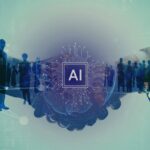 Despite widespread worries that AI might wipe out jobs, the actual effect on hiring is much more measured. Only 20,000 of nearly 287,000 planned layoffs this year are attributed to automation – with just 75 directly linked to AI. Andrew Challenger, senior vice president at Challenger, Gray & Christmas, puts it plainly: ‘Far less is happening than people imagine.’
Despite widespread worries that AI might wipe out jobs, the actual effect on hiring is much more measured. Only 20,000 of nearly 287,000 planned layoffs this year are attributed to automation – with just 75 directly linked to AI. Andrew Challenger, senior vice president at Challenger, Gray & Christmas, puts it plainly: ‘Far less is happening than people imagine.’
Amazon CEO Andy Jassy sees AI gradually reshaping corporate workforces, though he hasn’t provided a clear timeline. Ford’s Jim Farley has even suggested that AI could eventually replace up to half of all white-collar roles, echoing views from Anthropic’s CEO. With tighter economic conditions, many companies are shifting budgets away from hiring and into AI tools. Josh Bersin of The Josh Bersin Company points out that many firms have enacted hiring freezes as they invest more in AI-powered solutions, while organisations like Shopify and Duolingo now ask teams to demonstrate why a new hire is necessary if AI could handle the work.
Tech giants are also rethinking their strategies. For instance, Microsoft, which is investing heavily in AI, trimmed its workforce by 15,000 jobs partly to offset rising data centre costs, not solely due to AI’s rise. Some analysts warn that AI might sometimes serve as a convenient pretext for job cuts driven by financial pressures, as noted by Capital Economics.
AI is also modernising recruitment. Innovative startups now offer tools that streamline everything from resume screening to initial interviews. IBM’s CEO Arvind Krishna mentioned that while AI has taken over several HR tasks, the company continues to hire in areas like programming and sales. According to Svenja Gudell from Indeed Hiring Lab, broader economic dynamics, rather than AI alone, are having the bigger influence on hiring trends. Even though AI is reshaping certain roles, it isn’t poised to fully replace human workers.
If you’ve ever fretted over the future of your career in a tech-driven world, it’s worth remembering that changes tend to be gradual. Staying informed and continuously updating your skills can be your best strategy in navigating these shifts.








